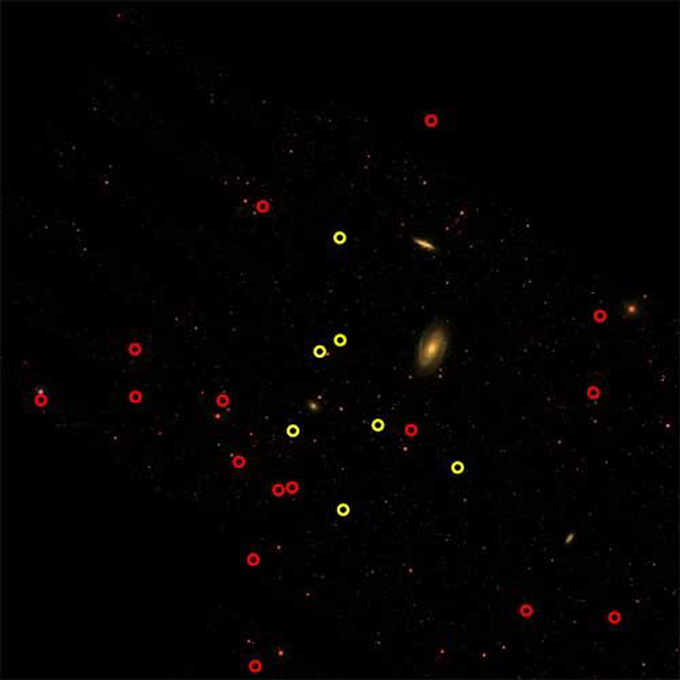Seven newfound dwarf galaxies sit on just one side of a larger galaxy
PASADENA, Calif. — The weak bantam universes in a close by world gathering appear to have missed the reminder. Rather than being scattered uniformly around the gathering's most monstrous universe, which occurs in our own cosmic system bunch, these recently found smaller people group in one area. What's more, stargazers don't have the foggiest idea why.
"This satellite circulation is simply abnormal," cosmologist Eric Bell said June 13 at the American Astronomical Society meeting.
Chime, of the University of Michigan in Ann Arbor, and associates utilized the Subaru telescope in Hawaii to chase after faint bunches of stars, demonstrating bantam worlds, around the system M81. This Milky Way-like universe is the most conspicuous part in a generally close by gathering of cosmic systems, around 12 million light-years from Earth. The group found one positive bantam world and six potential fainter ones.
The greater part of the known satellite systems (orbited in red) in the M81 universe bunch, alongside seven newly discovered up-and-comers (yellow), appear to group toward one side of the world M81 (focus).
SLOAN DIGITAL SKY SURVEY
"The part that is simply bananas," Bell said, is that the newly discovered satellite worlds all sit on one side of M81.
Virtual experiences of universe advancement recommend that the biggest systems have many weak, little worlds sprinkled consistently all through the external piece of the prevailing cosmic system's diffuse cloudlike corona. Perceptions in our cosmic system bunch back this up: The many bantam worlds known to circle in the Milky Way's edges are dispersed equally around the universe, as are the majority of the bantam universes seen around our closest huge neighbor, the Andromeda Galaxy (SN: 3/11/15; SN: 8/19/15).
However, in the M81 bunch, the seven recently recognized star clusters seem to encompass a more modest individual from that gathering, NGC 3077, which is around one-10th the mass of M81. "The way that the greater thing doesn't have more satellites," Bell says, "no one anticipates

MaryAsare
Hmmm 🤔